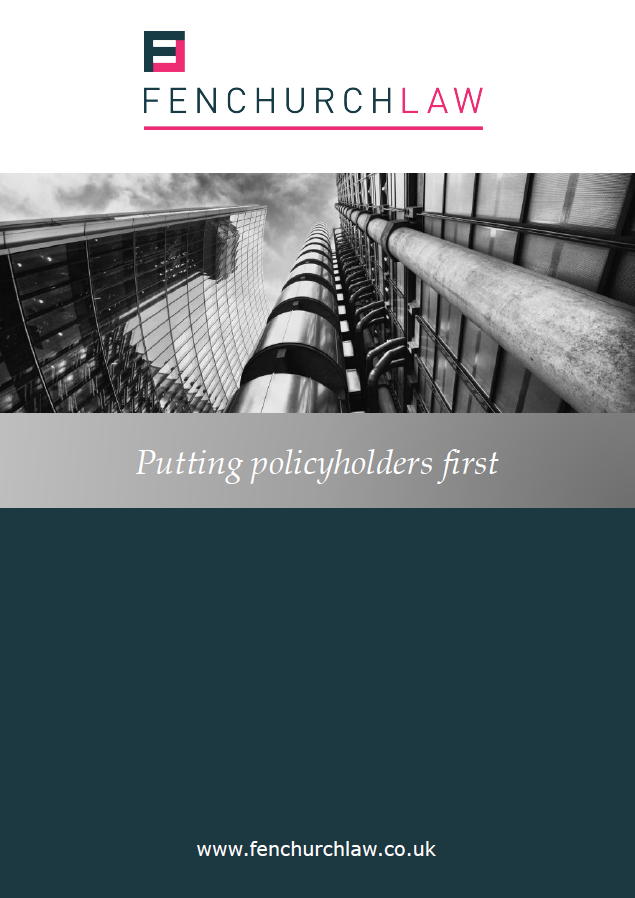
Climate Risks Series – Part 1: Climate litigation and severe weather fuelling insurance coverage disputes
The global rise in climate litigation looks set to continue, with oil and gas companies increasingly accused of causing environmental damage, failing to prevent losses occurring, and improperly managing or disclosing climate risks. Implementation of decarbonisation and climate strategies is subject to scrutiny across all industry sectors, with claims proceeding in many jurisdictions seeking compensation for environmental harm as well as strategic influence over future regulatory, corporate or investment decisions.
Evolving risks associated with rising temperatures have significant implications for the (re)insurance market as commercial policyholders seek to mitigate exposure to physical damage caused by severe weather events; financial loss arising from business interruption; liability claims for environmental pollution, harmful products or ‘greenwashing’; reputational risks; and challenges associated with the transition towards clean energy sources and net zero emissions.
Litigation Trends
Cases in which climate change or its impacts are disputed have been brought by a wide range of claimants, across a broad spectrum of legal actions including nuisance, product liability, negligence, fiduciary duty, human rights and statutory planning regimes. Approximately 75% of cases so far have been commenced in the US, alongside a large number in Australia, the EU and UK.
Science plays a central role and can be critical to determining whether litigants have standing to sue. The emerging field of climate physics allows for quantification of greenhouse gas (“GHG”) emitters’ responsibility, with around 90 private and state-owned entities found to be responsible for approximately two-thirds of global carbon dioxide and methane emissions. Recent advances in scientific attribution may provide evidence for legal causation in claims relating to loss from climate change or severe storms, flooding or drought.
Directors of high-profile companies may be personally targeted in such claims as liable for breach of fiduciary duties to the company or its members, in failing to take action to respond to climate change, or approving policies that contribute to harmful emissions.
Recent Cases
An explosion of ‘climate lawfare’ has kicked off in recent years, with the cases highlighted below indicative of key themes.
Smith v Fonterra [2024]
The New Zealand Supreme Court reinstated claims, struck out by lower courts, allowing the claimant Māori leader with an interest in customary land to proceed with tort claims against seven of the country’s largest GHG emitting corporations, including a novel cause of action involving a duty to cease materially contributing to damage to the climate system. This was an interlocutory application and the refusal to strike out does not mean that the pleaded claims will ultimately succeed on the merits. However, the judgment is significant in demonstrating appellate courts’ willingness to respond to the existential threat of climate change by allowing innovative claims to be advanced and tested through evidence at trials.
R v Surrey County Council [2024]
In a case brought by Sarah Finch fighting the construction of a new oil well in Surrey, the UK Supreme Court (by a 3:2 majority) ruled that authorities must consider downstream GHG emissions created by use of a company’s products, when evaluating planning approvals. The Council’s decision to grant permission to a developer was held to be unlawful because the environmental impact assessment for the project did not include consideration of these “Scope 3” emissions, when it was clear that oil from the wells would be burned.
Verein KlimaSeniorinnen [2024]
An association of over 2,000 older Swiss women complained that authorities had not acted appropriately to develop and implement legislation and measures to mitigate the effects of climate change. The Grand Chamber of the European Court of Human Rights held that Article 8 of the European Convention encompasses a right for individuals to effective protection by state authorities from serious adverse effects of climate change on their life, health and wellbeing. Grand Chamber rulings are final and cannot be appealed: Switzerland is now required to take suitable measures to comply. While not binding on national courts elsewhere, the decision will be influential.
ClientEarth v Shell [2023]
The English High Court dismissed ClientEarth’s attempt to launch a derivative action against the directors of Shell plc in respect of their alleged failure to properly address the risks of climate change, indicating that claims of this nature brought by minority shareholders will face significant challenges. The Court noted that directors (especially those of large multinationals) need to balance a myriad of competing considerations in seeking to promote the success of the company, and courts will be reluctant to interfere with that discretion, making it harder to establish that directors have breached their statutory duties.
US Big Oil lawsuits
Following lengthy disputes over forum, proceedings against oil and gas companies in the US are gaining momentum, paving the way for the claims to be substantively examined in state courts. Many actions against the fossil fuel industry seek to establish that defendants knew the dangers posed by their products and deliberately concealed and misrepresented the facts, akin to deceptive promotion and failure to warn arguments relied upon in other mass tort claims in the US, arising from the supply of tobacco, firearms or opioids.
Implications for Policyholders
With increasing volatility and accumulation risk, insurers will look to mitigate exposures through wordings, exclusions, sub-limits and endorsements. The duty to defend is the first issue for liability insurers, given the number of policyholders affected and the potential sums at stake in indemnity and defence costs.
In 2021, the Lloyd’s Market Association published a model Climate Change Exclusion clause (LMA5570). Property policies exclude gradual deterioration, with express wording or impliedly by the requirement of fortuity, and liability insurance typically excludes claims arising from pollution.
Lawsuits have been filed in the US over insurance coverage for climate harm, including Aloha Petroleum v NUF Insurance Co of Pittsburgh (2022), arising from claims by Honolulu and Maui, and Everest v Gulf Oil (2022), involving energy operations in Connecticut. Policy coverage may depend on whether an “occurrence” or accident has taken place, as opposed to intentional acts or their reasonably anticipated consequences (Steadfast v AES Corp (2011).
Policyholders should review their insurance programmes with the benefit of professional advice to ensure adequate cover for potential property damage, liability exposures and legal defence costs.
In the following instalments of our Climate Risks Series, we will examine the impact of reinsurance schemes and parametric solutions, and coverage for storm and flood-related perils in light of recent claims experience.
Authors
Amy Lacey, Partner
Ayo Babatunde, Associate
Queenie Wong, Associate
Other news
Fenchurch Law expands into Scandinavia with Denmark office launch
31 October 2024
Fenchurch Law, the award winning international law firm working exclusively for insurance policyholders and brokers,…



